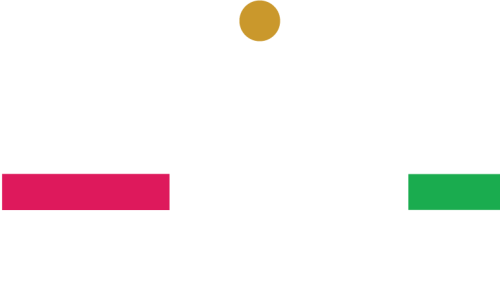Conducting a Risk Assessment
An essential element in PR crisis management is understanding potential risks. Conducting a thorough risk assessment allows organisations to identify and categorise threats, whether internal, like operational mishaps, or external, such as public backlash or regulatory issues. Through risk assessment, organisations can classify crises by their likelihood and potential impact, helping to prioritise responses and allocate resources effectively. This proactive approach enables organisations to establish targeted strategies for specific crisis types, preparing them to respond with agility and precision if a crisis does occur.
The Role of Transparent Communication During a Crisis
Transparency in communication during a crisis is fundamental. Organisations must be honest, open, and timely in sharing information, even when it involves admitting mistakes. Transparency helps maintain credibility and demonstrates accountability, which can have a positive effect on public perception. Developing a transparent communication strategy involves:
- Acknowledging the issue promptly
- Clarifying what actions are being taken to address it
- Providing updates regularly to avoid speculation or misinformation
By fostering an environment of trust through open communication, organisations can mitigate further fallout and maintain relationships with stakeholders, customers, and the public.
Timeliness in Crisis Response
The speed of a company’s response in a crisis can significantly influence how the situation unfolds. Delayed responses create a perception of negligence or lack of concern, whereas timely action can show an organisation’s commitment to addressing the issue. Quick decision-making requires pre-established protocols and prepared spokespeople who can act swiftly, delivering accurate information without compromising quality. Effective timing balances the need for a rapid response with the careful consideration needed to avoid miscommunication or hasty errors.
Social Media’s Role in PR Crisis Management
In today’s digital landscape, social media has a unique role in crisis management. Public reactions to crises are often immediate, with individuals sharing opinions and reactions across social channels, which can quickly amplify the situation. Here’s how organisations can manage social media during a crisis:
- Real-time monitoring: Track mentions, tags, and conversations about the brand to gauge public sentiment.
- Responsive engagement: Address questions, concerns, and misinformation directly to maintain control over the narrative.
- Unified messaging: Ensure consistency across social channels to prevent mixed messages.
Through active and responsible social media management, organisations can both monitor public response and share timely updates, demonstrating their commitment to transparency and engagement.
Consistent and Clear Messaging
In a crisis, clear and consistent messaging is vital to avoid confusion and misunderstandings. A well-coordinated approach to messaging across all platforms helps ensure that stakeholders, customers, and employees receive the same information, which maintains trust and credibility. Key strategies include:
- Developing centralised statements to use as a reference for all team members
- Using simple, direct language to ensure everyone understands the message
- Providing regular updates to keep the public informed and reassure stakeholders of ongoing efforts
Consistent messaging not only supports transparency but also limits the potential for conflicting information that could exacerbate the crisis.

Apologising Effectively
Apologising sincerely and effectively can help defuse tension during a crisis. A genuine apology demonstrates accountability and concern, which can go a long way in rebuilding public trust. The elements of a good apology include:
- Acknowledging the mistake clearly and directly
- Taking responsibility without shifting blame
- Outlining corrective actions to prevent recurrence
Understanding the timing and tone of the apology is crucial. A well-structured apology delivered at the right time can transform public perception, encouraging forgiveness and understanding from affected stakeholders.
Leveraging Data to Analyse the Crisis Impact
Data collection and analysis are critical in evaluating the impact of a crisis and informing the company’s recovery plan. By gathering data on customer sentiment, engagement metrics, and media coverage, organisations can gauge public response and measure the effectiveness of their crisis response efforts. Key metrics to analyse include:
- Changes in brand sentiment across social media and customer feedback channels
- Media coverage sentiment and reach
- Financial impacts on sales or stock prices
This data serves as a foundation for post-crisis evaluations, allowing organisations to refine their strategies and develop stronger crisis management frameworks for the future.
The Role of Media Relations in Crisis Recovery
The media plays a significant role in shaping public perception during a crisis. Positive media relations can aid in delivering clear, factual information and mitigating negative coverage. To build a constructive relationship with the media:
- Provide journalists with accurate information and avoid withholding critical details
- Prepare spokespeople for press conferences, ensuring they deliver consistent messaging
- Be proactive in offering updates and addressing queries
Organisations that cultivate positive media relations can leverage the media as a partner in crisis recovery, helping to disseminate their message effectively and restore their public image.

Learning from the Crisis: Debrief and Evaluation
Once the crisis is resolved, it’s crucial to conduct a debrief to understand what went well and where improvements are needed. This evaluation process includes:
- Gathering insights from all team members involved in the response
- Reviewing data collected during the crisis to assess the impact
- Identifying areas for improvement to strengthen future crisis strategies
A comprehensive debrief not only allows for valuable learning but also shows a commitment to ongoing improvement and readiness for any future crises.
Building a Resilient Brand Post-Crisis
Recovering from a crisis goes beyond just resolving the immediate issues; it requires ongoing efforts to rebuild and strengthen the brand’s reputation. Key strategies for building resilience post-crisis include:
- Continuing transparent communication to maintain trust with stakeholders
- Implementing lessons learned from the crisis to improve protocols
- Investing in ongoing reputation management efforts to strengthen brand image
A resilient brand is better equipped to withstand future challenges and regain the public’s trust, reflecting a proactive approach to reputation management.
Conclusion
Navigating a PR crisis requires a well-planned strategy, clear communication, and the ability to act quickly under pressure from any pr agency. Adhering to key principles in crisis management, including transparency, timeliness, and data-driven decisions, can mean the difference between a resilient brand and a lasting reputational setback. By adopting these principles, organisations can not only survive a crisis but emerge stronger, better prepared, and more trusted by the public.






